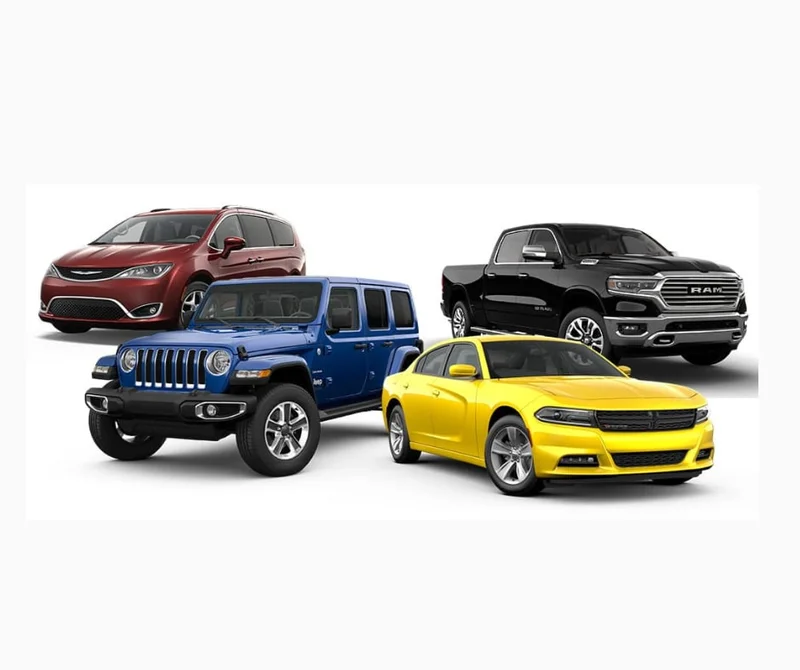Okay, buckle up, everyone, because I’ve got a theory, a hunch, something big brewing in the automotive world, and it involves none other than Carvana. Yes, that Carvana. The one that everyone wrote off as a COVID flash-in-the-pan, the one drowning in paperwork snafus. But what if their recent moves aren't a desperate scramble, but a calculated leap into the future of car sales? What if Carvana's quietly building a Dodge Chrysler Jeep Ram empire, and it's actually genius?
The news is trickling in: Carvana, after all the turbulence, has acquired not one, but two Chrysler-Dodge-Jeep-Ram dealerships, one in Arizona and now another in Texas. Two stores might not sound like an empire, but let's connect some dots here, folks. This isn't about just selling cars; it's about something much, much bigger.
The Stellantis Strategy: A Physical-Digital Hybrid
Carvana's spokesperson called the first acquisition "a small test in a single market." Right. And the Wright brothers' first flight was "a small hop." I'm not buying it. There's a deliberate strategy at play, and it centers around Stellantis. Notice anything interesting about the brands they're acquiring? It's all Dodge, Chrysler, Jeep, and Ram. These aren't random choices.
Why Stellantis? Well, as the article points out, these franchises are available. But I think there’s more to it than that. Stellantis, while producing some seriously desirable vehicles, faces unique market challenges. Maybe Carvana sees an opportunity to revitalize these brands, to reach a new generation of buyers who are comfortable with the online experience but still crave that in-person reassurance.
Think about it: Carvana's got the digital infrastructure, the online reach, the data analytics. But they lacked something crucial: a physical presence, a service network, that human touch. Now, with these dealerships, they're building a hybrid model—a blend of digital convenience and brick-and-mortar reliability. It's like they're realizing that the future isn't either online or offline, it's both.
And here's where it gets really interesting. Let's look at Nino Sita, the general manager at Lindsay Dodge Chrysler Jeep Ram. This guy is a force. He steered that Virginia dealership to the number one CPO ranking in the region and number seven nationally, while boosting new car sales by almost 200%! And how did he do it? By fostering a "one-team" philosophy, prioritizing used car sales, and embracing complete transparency. He even does cash blasts for the parts and service advisors! We need more of that! How GM Nino Sita turned Lindsay Dodge Chrysler Jeep Ram into a CPO powerhouse

Sita's philosophy mirrors what Carvana desperately needs: a human element, a connection to the community, a reputation for honesty. Imagine if Carvana could bottle that Sita magic and inject it into their new dealerships. The potential is enormous. The weekly cross-departmental meetings with 10 team members, from the controller to the BDC director, to discuss goals and challenges—amid growing market competition and rising operational costs in areas like customer acquisition. That is ingenious.
Carvana struggled with paperwork bottlenecks during its COVID highs, getting the company in trouble in multiple U.S. jurisdictions after customer registrations began to lapse before their title paperwork had been processed. Carvana lost its dealer license in Michigan over the fiasco, and had to settle a lawsuit in Connecticut over delayed registrations and payments to sellers.
It is like Carvana is the digital brain and the dealerships are the heart and hands.
What does this mean for the consumer? Well, imagine browsing Carvana's website, finding the perfect Jeep, and then being able to walk into a local dealership for a test drive, for expert advice, for that human interaction that a website simply can't provide. It's the best of both worlds. What does this mean for the future of automotive retail?
Of course, there's a potential downside. Carvana's rapid expansion during the pandemic led to some serious growing pains—paperwork issues, customer service complaints. They need to learn from those mistakes, to prioritize quality over quantity. And, ethically, they need to ensure that this hybrid model doesn't exploit customers, that it truly delivers on its promise of transparency and convenience.
But, honestly, when I first saw this news, I just grinned. This feels like a turning point, a moment where a struggling company might just reinvent itself, not by abandoning its original vision, but by grounding it in reality.









